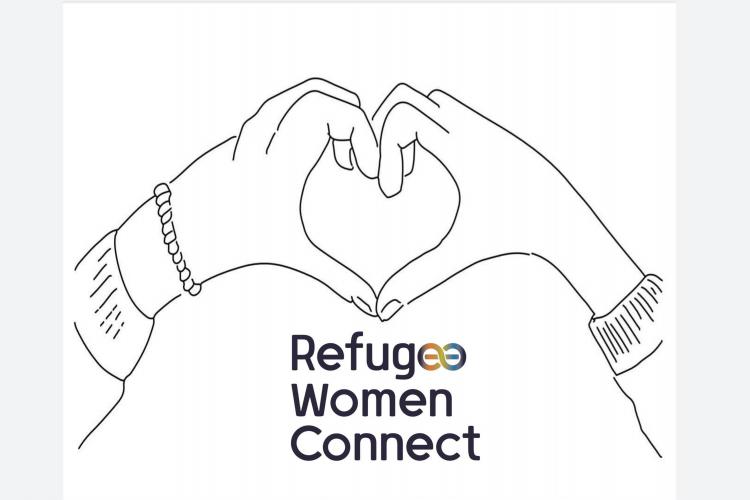Post by Victoria Canning and Francesca Esposito.

Crossing international borders and seeking sanctuary is not gender neutral. The ways in which persecution is experienced can often differ across genders, in that men are likely to have experienced the threat of political persecution, whilst women and LGBTQI people are disproportionately affected by interpersonal, sexualized and domestic violence (although can still also be detained).
The experience of seeking asylum is also highly gendered. Men often face racialized controls and are more likely to be detained than women. However, women may be subjected to further forms of violence and control at the hands of partners or family members, sexualized exploitation, and pregnant women face significant gaps in maternity care and support. For women with children, accessing social support, attending Home Office hearings or reporting appointments and ensuring access to schooling can be marred by destitution, affecting expenditure on uniforms, travel and even school trips. Recent research also shows that the asylum system, with its multifarious controls and often hidden harms, can corrode women’s sense of safety and wellbeing, even in asylum housing.
Various policies work to compound these problems, and the impacts often go unseen. For example, since 1999 people seeking asylum in the UK have been subject to dispersal (being moved to areas of the UK outside of London) whilst decisions are made by the Home Office regarding the person’s claim for refugee status. This policy has serious implications for extended families who may be split apart, leaving some people alone in a new country with little access to support from family, friends or other networks. The insecurity of people’s immediate future also have implications for health and wellbeing, as many people seeking asylum feel like they are in a temporal limbo, with little control over their lives or futures.
Individuals who have been receiving torture or sexual violence support can lose vital networks that may otherwise help them in surviving the impacts of abuse. Studies also show that pregnant women who are dispersed may lose maternity support networks or even contact with midwives, General Practitioners and family, all of which are important to the health and wellbeing of the woman and baby during and after pregnancy.
This is only a small set of examples of a multitude of policies and practices that can have serious physical, social and psychological consequences for women seeking asylum.
Refugee Women Connect Takes Over!
Whilst the hostile and gendered harms of the current asylum system in the UK are well-documented, they do not go unchallenged. Across the UK, resistance to asylum harms has been growing. Charities, autonomous grassroot and advocacy groups across the country have worked to expose such harms,and centralise women’s experiences in a way that supports survival and counteracts the problems we have outlined above.
Refugee Women Connect is one such organization. It exists because women asylum seekers and refugees face inequality and are denied social justice. Refugee and asylum-seeking women can be made vulnerable and isolated, not knowing what their rights are or how to exercise those rights. As well as undertaking significant and timely advice around the gendered impacts of Covid-19, RWC offers outreach, early intervention, mental health and wellbeing support and casework.. In short, where women need support in the asylum system, RWC work to provide it. Moreover, and importantly, the staff and board include women who have themselves faced the barriers created in and through the asylum system, leading in autonomous decisions and embedding survival centred agendas for progression and social justice.
International Women’s Day 2021
As we are all reminded (daily!), life is not quite the same at present, and the same goes for International Women’s Day. Where we might usually meet with friends, march on the streets or stage other celebrations and interventions, this year is a little different. Instead, many of us will move our voices online using these platforms to resonate their claims globally.
This is particularly important in the present moment, as the syndemic has exacerbated and amplified pre-existing structural problems, including the gendered, sexualised and racialised barriers faced by women seeking refuge. Also, and as grassroots feminist movements claim, the neoliberal management of the syndemic has intensified systematic violence against women and LGBTQI people as well as colonial and racist oppressions.
Today, Refugee Women Connect work with us in our Border Criminologies activism and advocacy roles. We are super excited to welcome some of the staff, advocates and board to take over BC on International Women’s day 2021! In the podcasts and blogs at the side of this page, they share with us their experiences of seeking asylum, ideas on alternative systems and – importantly – to plan what some members would build for themselves, and a socially justice world for women seeking asylum.
If you are interested in supporting Refugee Women Connect, you can donate here, sign up to be a monthly supporter or register to fundraise.
Any comments about this post? Get in touch with us! Send us an email, or post a comment here or on Facebook. You can also tweet us.
__________
How to cite this blog post (Harvard style)
Canning, V. and Esposito, F. (2020). Refugee Women Connect Take Over: International Women’s Day!n. Available at: https://www.law.ox.ac.uk/research-subject-groups/centre-criminology/centreborder-criminologies/blog/2021/03/refugee-women [date]
Share:








